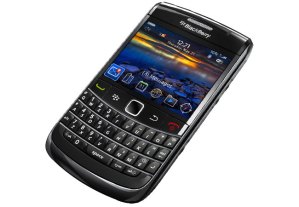
The government of India has been exerting pressure on Internet and technology companies to gain access to encrypted communications on Internet and mobile services out of concern that terrorists, militants, and others could use the technology to stage attacks and carry out other illegal activities. Canada’s Research in Motion has been the first focus of India’s regulation, with the country threatening to shut down BlackBerry services unless government security can tap into communications. RIM has come up with a way for security officials to request access to communications via BlackBerry Messenger, but now says that it will not be providing decrypted access to enterprise communications services.
RIM’s statement comes in response to an article in India’s Economic Times that claimed RIM had offered to install a “network data analysis system” at its premises in India, enabling Indian authorities to monitor all data on RIM’s network while also ensuring decoded information would not be transmitted out of the country.
According to IDG News Service, RIM India denies that it will be granting access to enterprise communications, although it is implementing mechanisms for authorities and local carriers to gain “lawful access” to BlackBerry Messenger and other consumer services. RIM India has emphasized that access to consumer communications will not be an open door, and will be granted on a case-by-case basis.
RIM’s stance that it will not be providing access to corporate communications is in keeping with the company’s position that it cannot provide access to those systems: the encryption keys used by the technology are known only to the customers using the system, and RIM has insisted there is no back door that would enable them to decrypt and access data. RIM has indicated it can hand over encrypted data.
India has most recently set a deadline of January 31, 2011 for RIM to enable interception of communications on BlackBerry mobile devices. The country’s concern over un-monitorable mobile communications comes in the wake of the 2008 terror attacks in Mumbai, which were partially coordinated by mobile and satellite phones. Nokia has indicated it will cooperate with the Indian government’s demands to be able to monitor communications; India is also expected to demand access to services like Skype and Google Talk.


